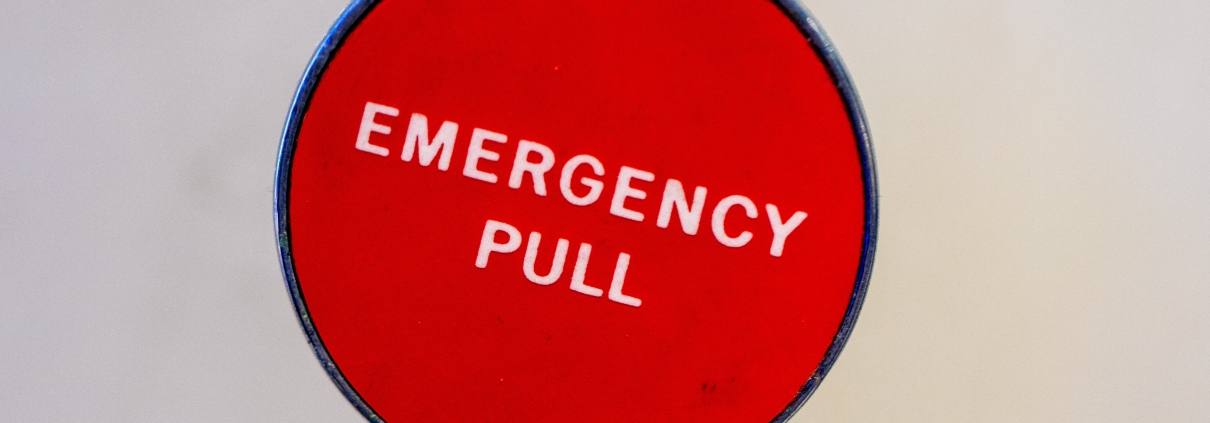Risk Management is often over complicated. It is, in fact, a simple process that is part of everyday life. Risk Management is defined as ‘the forecasting and evaluation of risks, together with the identification of procedures to avoid or minimize their impact’. What this article demonstrates is the simplicity and effectiveness of using a Risk […]
Silos. Good for grain storage, bad for business! Silo mentality in an organisation is a well-documented issue that, at best, reduces operational efficiency and at worst produces a damaging corporate culture; For best results, break through silos!
“Information silos are created when management does not believe there to be enough benefit from sharing information.” But at Nuffield Group we work to make stronger, safer, and more resilient organisations and business communities. And to do that we are open to collaboration and collective learning to drive innovation and growth. Business divisions that operate independently of each other, and who avoid sharing information and resources are the antithesis of that.
Initially, it might appear productive to have departments working efficiently and independently. However, when they fail to communicate and work together business operations begin to suffer.
The challenge of breaking down silos doesn’t just apply to individual organisations – it can be extended to broader industries and communities too. Every organisation has valuable knowledge, tools, and resources that can be of great use to others but the tendency is to silo them, not share. Our approach is, instead, to leverage each other’s cognitive diversity and pool together our unique experiences and resources to solve common problems.
GNTX is our online collaborative platform for industry leaders to share their best practice solutions to common challenges. By breaking down silo mentality and nursing a mindset shift in business practice, we can work together to create best practice solutions to common challenges. By being willing to share non-competitive information and learn from each other, we can reach across different industries and business communities, to create shared value for all.
In this environment, businesses no longer keep their best practice solutions to themselves but share them, breaking down the silos and opening doors to further collaboration.
This way, we all benefit from safer, more resilient industries and communities.
If you’re interested in finding out more about joining our Give ‘n’ Take platform (GNTX) and leveraging resources from other businesses and industries then Contact us via the form on this website; email us direct at nuffield@nuffieldgroup.com or Call 1300 308 257 or +61 404 852 062
Unfortunately, most of us in our personal and professional lives have to deal with incidents and emergencies at some point or other. Some of these situations become crises and a crisis can then turn into a disaster and have dreadful outcomes. The impacts can be massive, not only for an individual but also for an organisation’s reputation and company profitability. So, don’t let an incident develop into a crisis!
There are countless case studies of how organisations failed to act allowing incidents and emergencies to evolve into disasters with very sad outcomes. We all have longstanding memories of events at a local, state, national or international level, particularly where things escalated out of control and became disasters because there was a lack of leadership or, even worse, a denial or inability to act.
Regrettably, there is somewhat of a paucity of material in academia on these four interrelated terms to inform and educate the need for preparation and conditioning to actively manage incidents and emergencies before they become crises or disasters. So, here are some ideas to help you prepare and get ready, particularly as an organisation, to take action because, I am sorry to say, incidents are just part of everyday life, whether at work or in our private lives. Some days we seem to encounter them with repetitiveness, whether that’s in our travel to work, at work or when socialising. An incident is an event that is unpleasant or unusual and an incident can all too easily evolve into an emergency, become a crises and end up as a disaster for a business or organisation.
That’s why planning for an emergency is key to the survival of a business. Planning needs to identify risk and instigate appropriate action to manage the risk. As we have seen, repeatedly, it is a difficult proposition to totally remove all risk from an operation. If it was possible communities would not need insurance, emergency management plans, installed passive and active fire protection and security systems, audit and compliance arrangements and business continuity plans.
So, given it is a reasonable assumption that your organisation will experience an incident or emergency, the trick is to prevent it from escalating to a disaster. It is essential that there is a plan with clear roles and responsibilities laid out to manage the emergency. Communication of the plan is also of critical importance along with training and exercising and scenario planning. An organisation’s senior leadership must be committed to having a plan and actively managing any emergency.
Incidents, emergencies, crises and disasters seem to be closely linked and tend to follow on from each other unless there are processes in place to control them. Incidents are the trigger, the emergency is the immediate aftermath, the crises is the result of an emergency overwhelming a business and triggering reactions normally outside of normal day-to-day working processes and a disaster is the culmination of all these elements when all of the controls put in place begin to fail.
It has become fundamental to all businesses, no matter the size, to have a plan in place to ensure they have, at the very least, a basic knowledge of procedures to aid them during an emergency; laying out the plans for generic incidents such as flood, fire, adverse weather, computer failures, breakdowns and other incidents that may befall a business.
Whilst the emergency plan may point out the procedures for dealing with the incident as it happens or in the immediate aftermath there also needs to be a crisis plan so that there is communication and collaboration across the organisation to attempt to control what is happening, make critical decisions and move into the next stage: business continuity management. That’s how you ensure a business can continue operating in the weeks, months or years following an incident.
If you need help assessing your risk, developing any of these plans, or training for potential incidents then Nuffield Group would be delighted to assist you to build your business resilience and be prepared for any potential shocks and stresses.
Contact us via the form on this website; email us direct at nuffield@nuffieldgroup.com or Call 1300 308 257 or +61 404 852 062

 Photo by CDC on Unsplash
Photo by CDC on Unsplash Photo by
Photo by  Photo by Jason Leung on Unsplash
Photo by Jason Leung on Unsplash